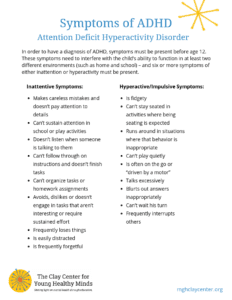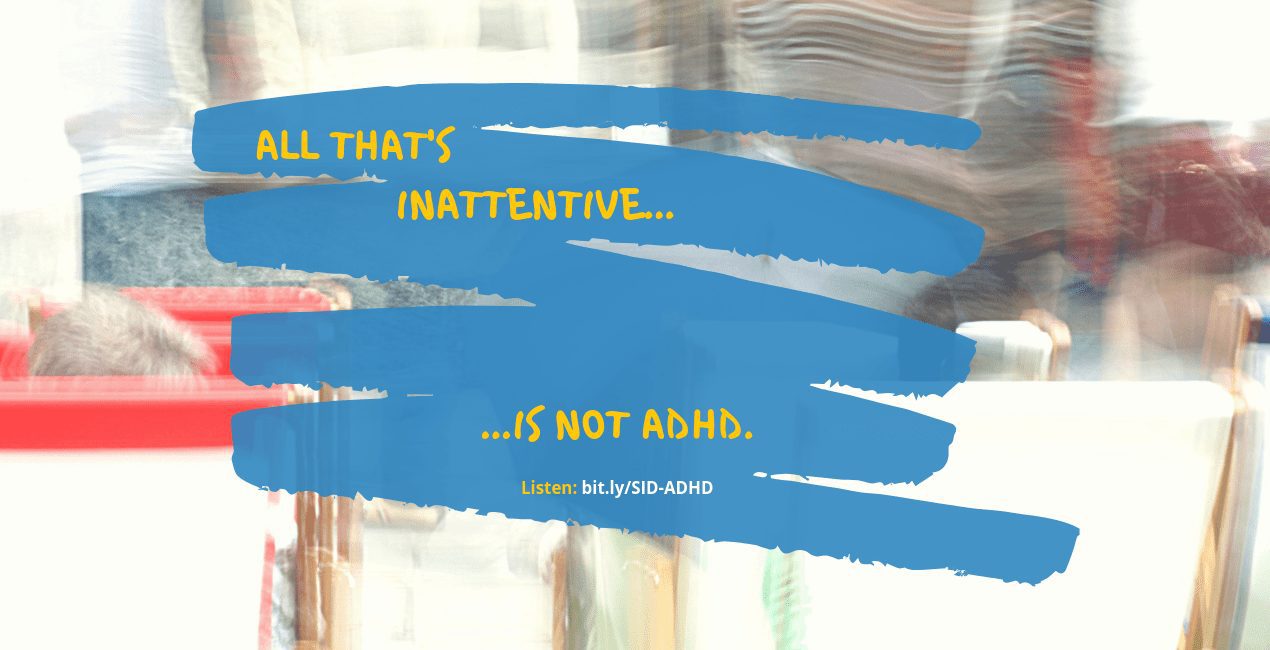Q+A: My child was diagnosed with ADHD and I don’t see problems at home. Why is school so tough for him?

Posted in: Parenting Concerns
Topics: Learning + Attention Issues, Mental Illness + Psychiatric Disorders, Q+A
My child was diagnosed with ADHD. He’s taking medication and I don’t see many problems at home, but his teacher constantly complains about issues at school. Why is school so tough for him?
Children with ADHD can have a tough time in school because their challenges with attention and organization tend to interfere with their ability to perform in the classroom, as so much of classroom learning depends on a child’s ability to attend. Some kids with ADHD may have trouble starting an activity. Others may jump into an activity with gusto, only to find their attention quickly waning and their enthusiasm gone soon after they started the activity. They often have trouble organizing their ability to do complex tasks, like term papers or projects. Many children with ADHD can’t help responding to things in the environment. They can have trouble filtering out stimuli as simple as a bird flying past the classroom window or their classmate tapping his pencil.
Many parents describe their children with ADHD as “hit or miss,” in that sometimes they do something perfectly and other times they rush through a task without even reading the directions. This may have something to do with their interest level, as children with ADHD can be quite attentive when they are interested in a topic or activity. In fact, many current researchers view ADHD as an issue with flexibility of attention, in that children with ADHD pay dedicated attention to things that are naturally interesting to them, and tend to have difficulty with things that aren’t.
This may look like a motivational problem to parents, but it’s not. Instead, the compelling nature of the task helps stimulate the attentional system in a way that keeps the child aroused and engaged. People without ADHD can work on a boring task when they have to because their attentional system (which includes the frontal lobes of the brain) is working at its capacity, while people with ADHD work best on tasks they have chosen or find interesting because their attentional system is under-aroused. This is why many parents will say to me, “He can’t have ADHD because he plays his video games for hours!”
Because children with ADHD have difficulty inhibiting their responses, interrupt others, have trouble waiting their turn, talk before they think, and begin a task before listening or reading directions, they have trouble in school. These same behaviors can lead to trouble with peers and a fair number of children are “rejected” by their peers because they are intrusive, aren’t aware of social boundaries, are impulsive, and have difficulty “playing by the rules” both within the classroom and outside of the classroom. Sometimes, this rejection leads to a loss of self-esteem.
The Print Out in this article lists the criteria of ADHD. In order to have the diagnosis of ADHD, the symptoms must be present before age 12 years. If a child begins displaying these symptoms “out of the blue” in adolescence, they’d be attributed to something other than ADHD, such as depression, anxiety, or stress. These symptoms also have to be present in more than one situation, so if a child has these symptoms at home but not at school, the problem may lie in the home environment rather than in the child. Similarly, if a child is only struggling at school, the issue might be due to a poor classroom environment, poor teacher match, or a learning disability that is causing the child to “cope” with his problems by acting out or by not paying attention to his schoolwork. These problem areas have to be impairing – in other words they need to interfere with the child’s ability to function in at least two different environments (such as home and school) – and six or more symptoms of either inattention or hyperactivity need to be present.


 Share
Share Tweet
Tweet





